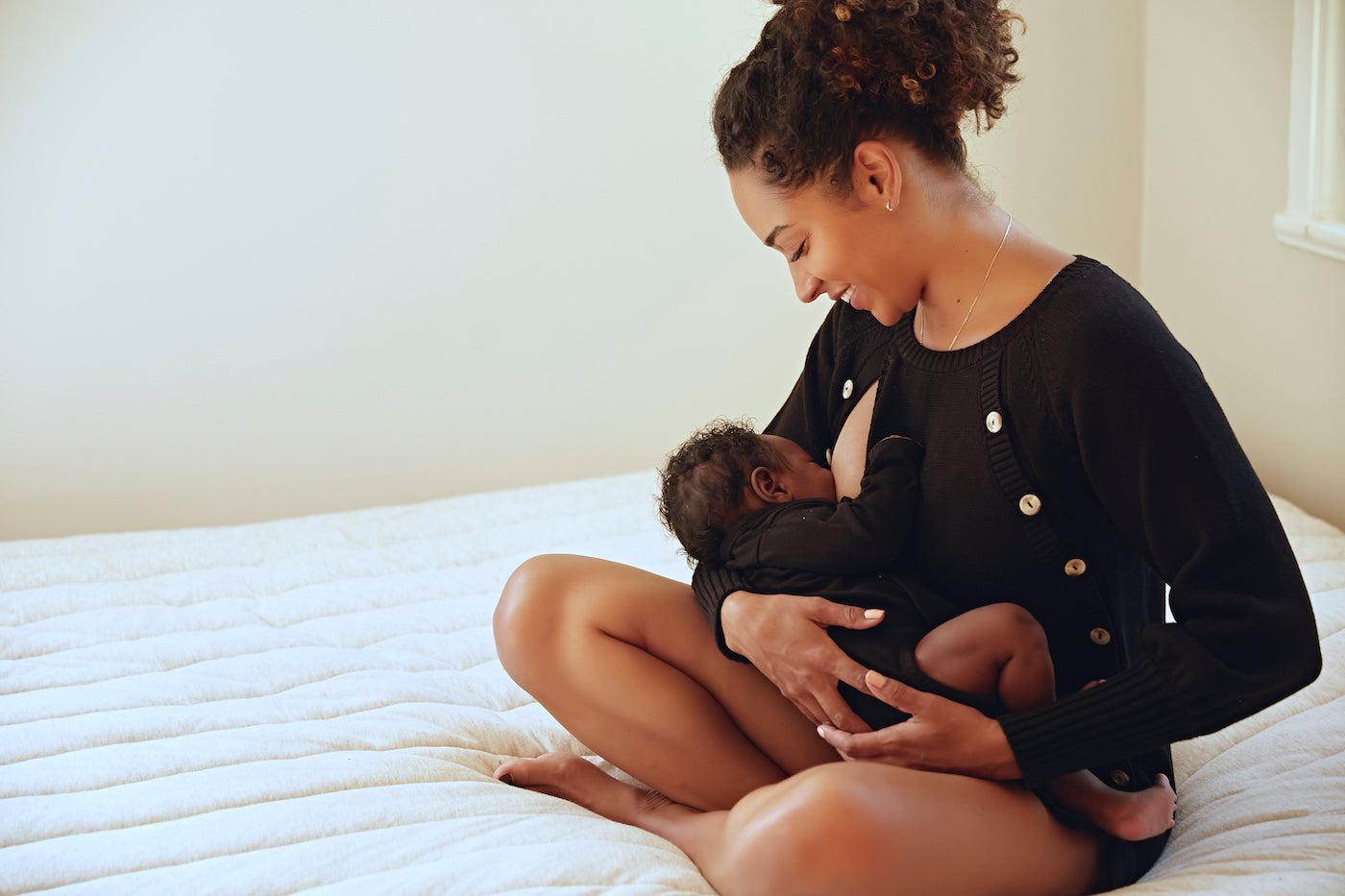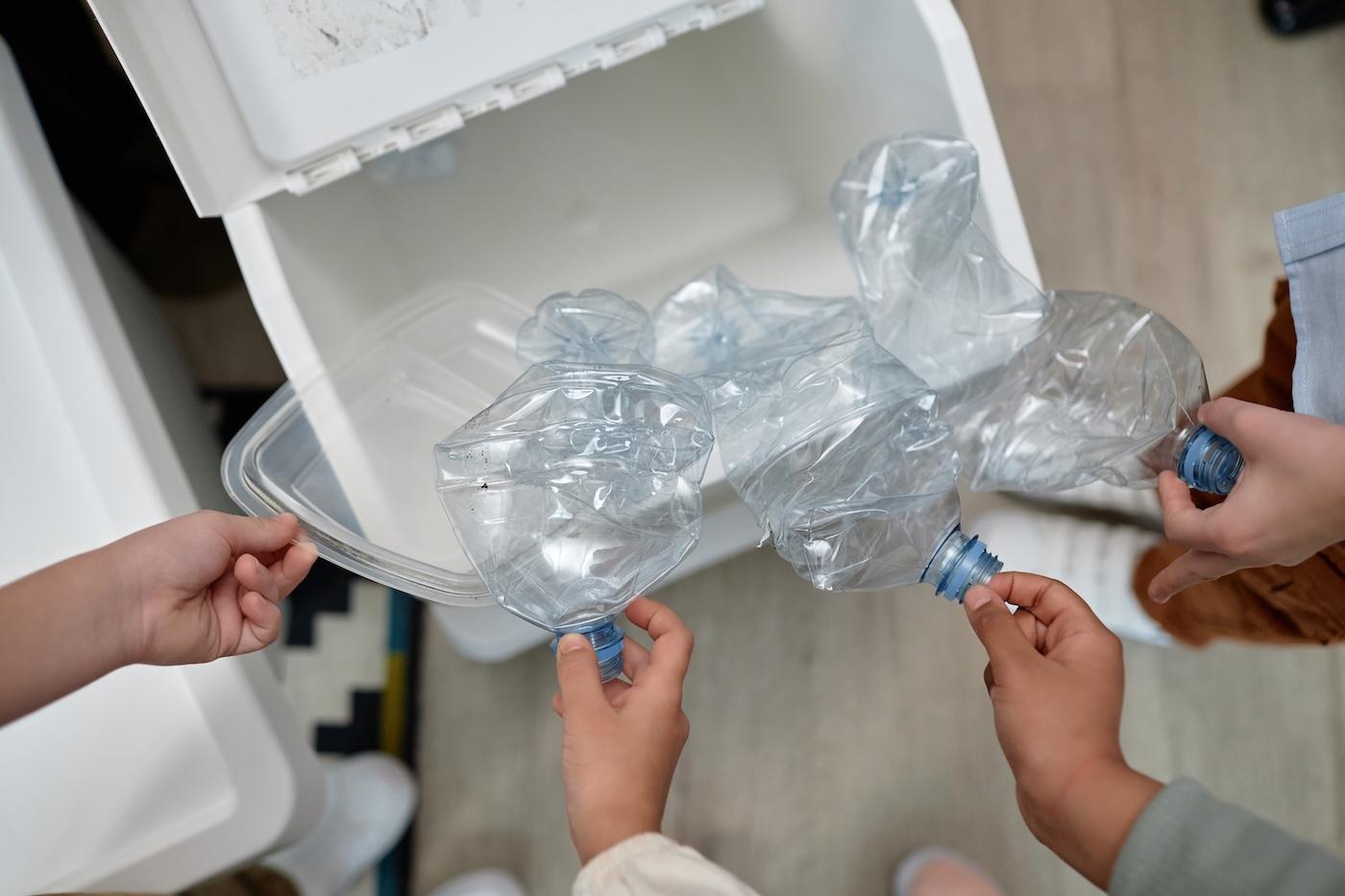PARENTS
Real Parents, Real Talk… on Breastfeeding: Rachel Nicks
Rachel Nicks, founder of Birth Queen, shares her breastfeeding experience in honor of Black Breastfeeding Week.

Written by
Happiest Baby Staff

In honor of Black Breastfeeding Week, we’re interviewing a few moms to gain a better understanding of their experiences with breastfeeding and motherhood as Black women.
Rachel Nicks has a long long resume, and one of the credentials she touts with pride is being a breastfeeding mom.
But in addition to her lived experiences as a mother, Rachel Nicks is a doula, lactation counselor, a certified trainer with a niche in pre-and post-natal fitness, and an actress. And maybe most importantly, she’s the founder of Birth Queen, a nonprofit that’s tackling the Black maternal mortality crisis.
As far as her own breastfeeding journey goes, Rachel says she’s been “super blessed” with both of her sons.
“I had support and encouragement and came from a family of breastfeeders, so I had an innate confidence and a relaxed approach,” she says.
![[object Object]](https://cdn.sanity.io/images/301lhh0a/production/1c9899f5baed1f5438a8936347f7654977dcf683-320x480.jpg?w=640&auto=format&q=75&fit=max)
She was able to breastfeed her older son, Samuel, for 18-1/2 months.
“At that point, it was a bonding thing,” she says.
Her journey was remarkably smooth—with the exception of a brief nipple confusion episode early on when she had to introduce a bottle in order to go on an audition.
“When I came back from my audition, he had nipple confusion. It was the worst two weeks; I had to hold my husband’s hand for every latch,” she says.
Once they reestablished their latch, Rachel didn’t face another big challenge…until the time came to put an end to this ritual the two of them loved so much.
“I told him one day, ‘the milkies are gone.’ I still remember the way he looked at me. He didn’t want to touch me because that’s how we bonded. It was heartbreaking,” she says. “That was hard, but we got over the hump.”
Now, Rachel is still breastfeeding her 10-month-old, Baldwin, with the hopes of continuing for several more months.
“I plan on not putting pressure on myself, but it worked to make that 18-month mark for his brother, so that’s my goal,” she says.
So far, it’s paid off.
“I’m surprised by how much I enjoy it,” she says. “They say breastmilk boosts the immune system, and I have two healthy kids. I didn’t deal with colds.”
![[object Object]](https://cdn.sanity.io/images/301lhh0a/production/97808e029c87d509595a5b896d2db6580b4c38c6-321x480.jpg?w=750&auto=format&q=75&fit=max)
But, of course, breastfeeding didn’t come without some hurdles.
“There are times that are taxing, I have to pump when I work. It’s added layers of to-dos, but being a mother isn’t convenient,” she says.
Her advice for dealing with the work-parenting juggling act?
“Pumping and going back to work is annoying, but don’t stop because work creates challenge. There are always resources and tools,” she says.
She points out that stress is detrimental to milk supply. “It doesn’t have to be all or nothing. I think you’re setting yourself up for failure if you expect perfection at any point in parenting.”
Of course, between her own experiences and her work with Birth Queen, Rachel’s well-versed on the specific and significant challenges that Black women, in particular, face.
“Historically we were wet nurses. We have trauma that lives in us at a cellular level as a result. Our bodies have been used and abused in this country. Even when it comes to breastfeeding that comes into play,” she says.
Still, she urges parents who would like to breastfeed to find a way to make it work.
“It is a beautiful experience, but it’s imperative you get educated and ask for help. Neither of you have done it before,” she says. “Take a breastfeeding class. Instead of registering for a stroller for your baby, register for a lactation consultant so you can have a supported journey. Your journey as a mother colors their journey as a baby. Be aware of stress and do your best to put systems in place to help you feel supported and not stressed.”
“We often as women have to feel like we’re trading our identity. To me, you’re adding to your resume. You’re adding mother. You’re more dynamic, which is why you’re a queen when you become a mother,” she says. “Rarely do we feel like that, but you are a birth queen.”
Disclaimer: The information on our site is NOT medical advice for any specific person or condition. It is only meant as general information. If you have any medical questions and concerns about your child or yourself, please contact your health provider.
SHARE THIS ARTICLE
MOST LOVED
Sleepytime Sidekicks












